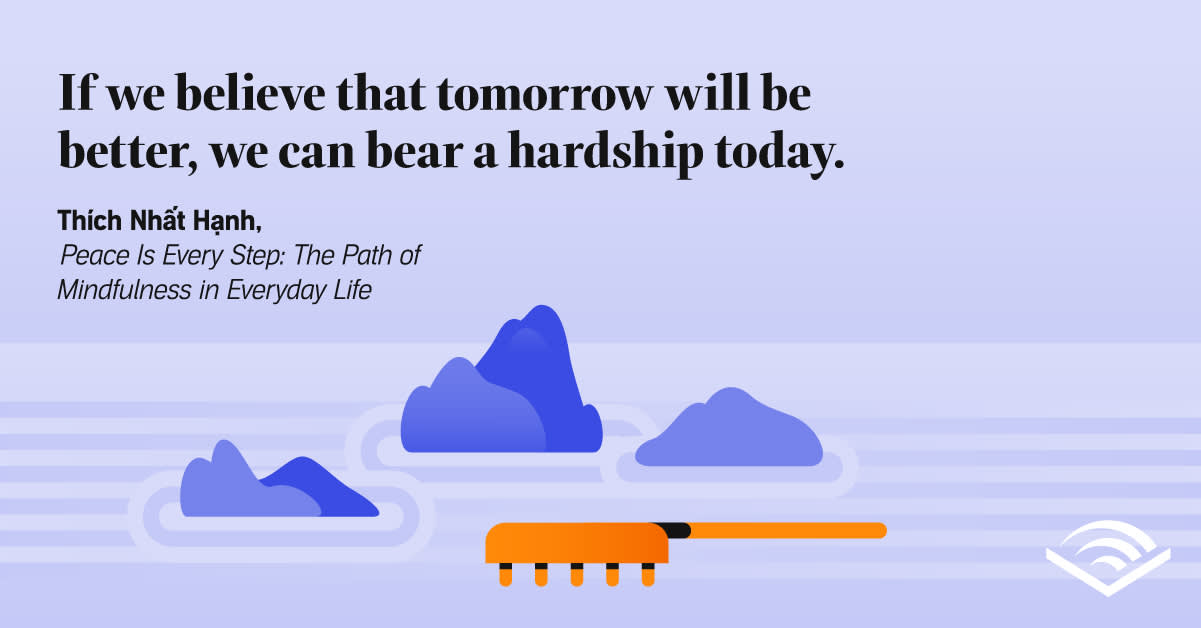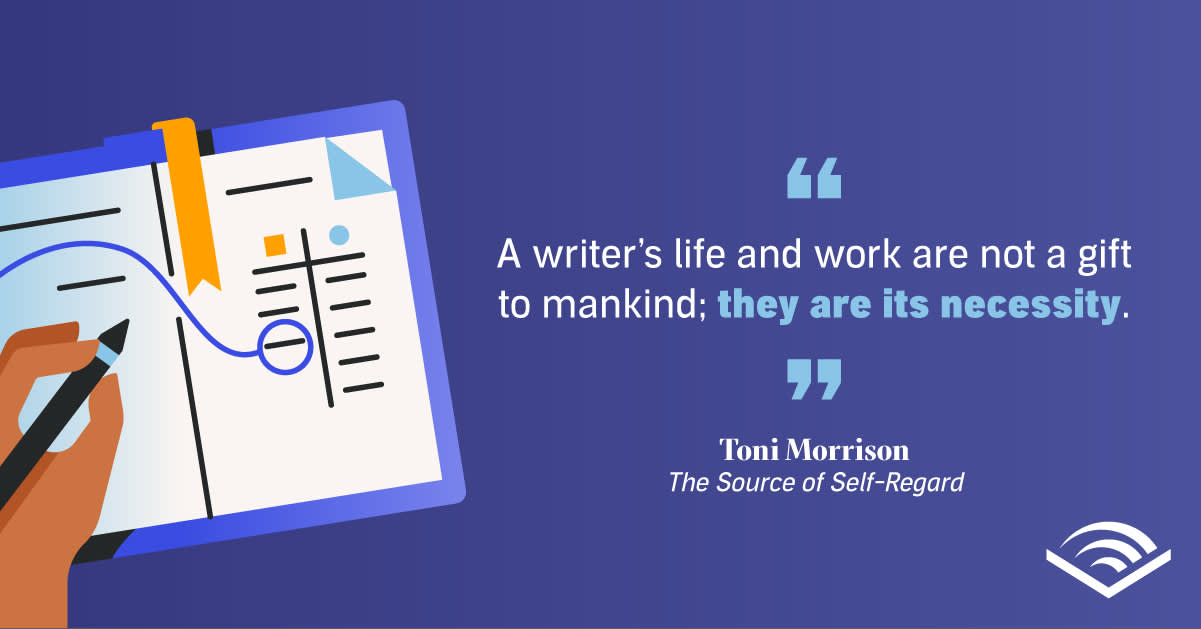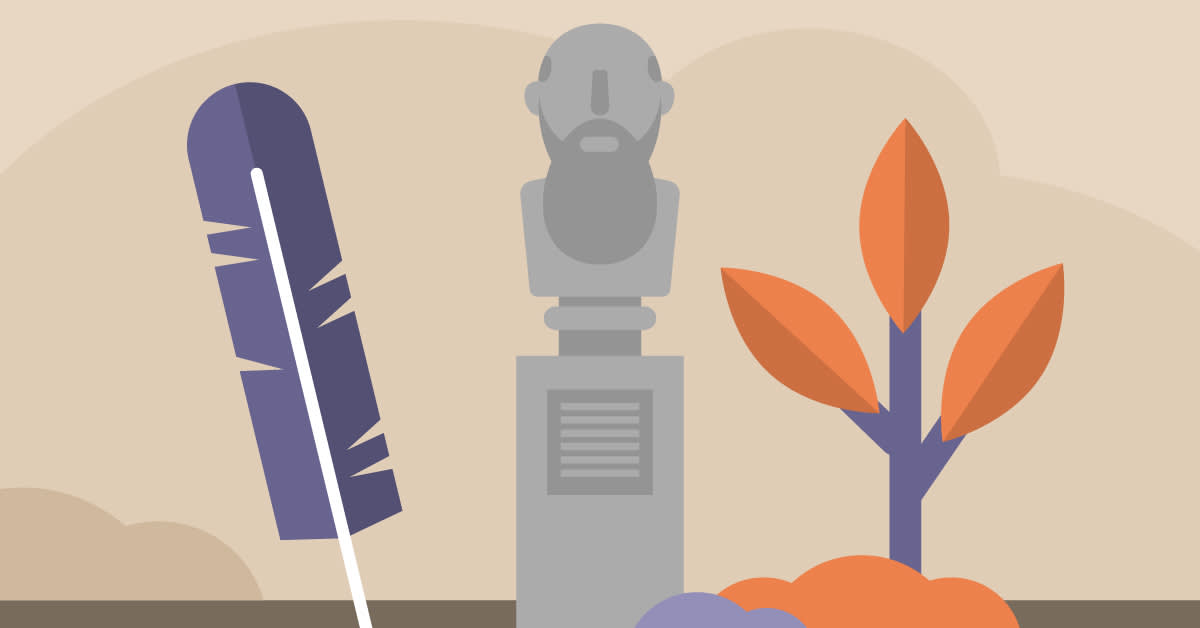Stoicism is a school of philosophy dating back to the third century BCE. Founded by Zeno of Citium, the philosophy soon grew to include some of the most influential thinkers of the Greek and Roman era. The Stoic philosophers teach that happiness and fulfillment can be achieved by refusing to be influenced by desire, societal pressures, or anything outside your control. Stoicism is about accepting moments as they arise, and the power of logical thinking.
Below you'll find a list of the best Stoicism quotes. These quotes come from various Stoic philosophers, including the three most influential: Seneca, Epictetus, and Marcus Aurelius. Stoicism is still a thriving philosophy today. If you're curious about what it is, and how to incorporate it into your daily life, these quotes are the perfect place to start.
Seneca quotes on adversity and resilience
Seneca saw adversity not as a curse, but as a crucial training ground for the soul. He argued that a life without struggle leaves a person weak and untested. These quotes emphasize his belief that every challenge is an opportunity to strengthen your mind and prove your virtue.
"No prizefighter can go with high spirits into the strife if he has never been beaten black and blue..."—Letters from a Stoic
"Everlasting misfortune does have one blessing, that it ends up by toughening those whom it constantly afflicts."—Letters from a Stoic
"No one could endure lasting adversity if it continued to have the same force as when it first hit us."—On the Shortness of Life
"We suffer more often in imagination than in reality." —Letters from a Stoic
"The greatest blessings are a source of anxiety, and at no time should fortune be less trusted than when it is best..."—Letters from a Stoic
Seneca quotes on time and mortality
Seneca’s writings serve as a powerful and urgent call to live with purpose. He believed that life is not inherently short, but that we make it so by living carelessly. These quotes emphasize the importance of using every moment wisely and not procrastinating on living a virtuous life.
"It is not that we have a short time to live, but that we waste a lot of it."—On the Shortness of Life
"Life is long enough if you know how to use it."—On the Shortness of Life
"Begin at once to live, and count each separate day as a separate life."—Letters from a Stoic
"The greatest waste of life is to live for a long time but not to live well."—On the Shortness of Life
"Putting things off is the biggest waste of life: it snatches away each day as it comes, and denies us the present by promising the future."—On the Shortness of Life
"You are living as if destined to live for ever; your own frailty never occurs to you..."—On the Shortness of Life
"The whole future lies in uncertainty: live immediately."—On the Shortness of Life
"Everyone hustles his life along, and is troubled by a longing for the future and weariness of the present."—On the Shortness of Life
"Life is divided into three parts: what was, what is and what shall be. Of these three periods, the present is short, the future is doubtful and the past alone is certain."—On the Shortness of Life
Seneca quotes on character and virtue
For Seneca, true wealth is an internal state, separate from material possessions. These quotes explore his view that happiness is a choice and that a virtuous character is the only reliable path to a life of peace and contentment.
"True happiness is to enjoy the present, without anxious dependence upon the future."—On The Happy Life
"A good character is the only guarantee of everlasting, carefree happiness."—Letters from a Stoic
"If you really want to escape the things that harass you, what you're needing is not to be in a different place but to be a different person."—Letters from a Stoic
"If you shape your life according to nature, you will never be poor; if according to people's opinions, you will never be rich."—Letters from a Stoic
"It is wrong to live under constraint, but no man is constrained to live under constraint."—Letters from a Stoic
"It is equally faulty to trust everyone and to trust no one."—Letters from a Stoic
"A friend should be retained in the spirit; such a friend can never be absent."—Letters from a Stoic
"Philosophy is no trick to catch the public; it is not devised for show. It is a matter, not of words, but of facts."—Letters from a Stoic
"The knowledge of sin is the beginning of salvation."—Letters from a Stoic
"The most important contribution to peace of mind is never to do wrong."—Letters from a Stoic
"Anger often comes to us, but more often we come to it."—On Anger
Epictetus quotes on the dichotomy of control
The foundational principle of Epictetus's teachings is the clear distinction between what is within our control and what is not. This concept is a central pillar of his work, encouraging an active practice of redirecting energy away from external frustration and toward internal mastery.
"It’s not what happens to you, but how you react to it that matters."—The Enchiridion
"The things that are in our power are our opinions, impulses, desires, and aversions. The things that are not in our power are our bodies, our possessions, our reputation, and our honors."—The Enchiridion
"What disturbs men's minds is not events but their judgments on events."—The Enchiridion
"First say to yourself what you would be; and then do what you have to do."—The Enchiridion
"Freedom is not achieved by satisfying desire, but by eliminating it."—The Enchiridion
"You will never have to experience defeat if you avoid contests whose outcome is outside your control."—The Enchiridion
"Every circumstance comes with two handles, which one of which you can hold it, while with the other conditions are insupportable."—The Enchiridion
"Free is the person who lives as he wishes and cannot be coerced, impeded or compelled..."—The Enchiridion
"Who, then, is the invincible human being? One who can be disconcerted by nothing that lies outside the sphere of choice."—The Enchiridion
"What say you, fellow? Chain me? My leg you will chain--yes, but my will--no, not even Zeus can conquer that."—The Enchiridion
"You should dissociate yourself from everything outside yourself – the body, possessions, reputation, books, applause..."—The Enchiridion
"Remember that you are an actor in a play, the character of which is determined by the Playwright..."—The Enchiridion
"Our master is anyone who has the power to implement or prevent the things that we want or don't want."—The Enchiridion
"Restrict yourself to choice and refusal; and exercise them carefully, with discipline and detachment."—The Enchiridion
"The condition and characteristic of a philosopher is this: he expects all advantage and all harm from himself."—The Enchiridion
"Only consider at what price you sell your own will: if for no other reason, at least for this, that —The Enchiridion
"When you feel burning desire for something that appears pleasureful... wait till the enchantment fades and you can see things as they are."—The Manual
Epictetus quotes on character and self-improvement
For Epictetus, philosophy was a daily practice of building character. These quotes emphasize his belief that true education is about self-mastery and that progress is made by taking responsibility for one's own actions, not by blaming others.
"It is the act of an ill-instructed man to blame others for his own bad condition..."—The Enchiridion
"Never praise or blame people on common grounds; look to their judgements exclusively."—The Enchiridion
"If you want to improve, be content to be thought foolish and stupid with regard to external things."—The Enchiridion
"If a person gave your body to any stranger... you would certainly be angry. And do you feel no shame in handing over your own mind to be confused... by anyone who happens to verbally attack you?"—The Enchiridion
"Man, the rational animal, can put up with anything except what seems to him irrational; whatever is rational is tolerable."—The Enchiridion
"Know, first, who you are; and then adorn yourself accordingly."—The Enchiridion
"Nothing important comes into being overnight; even grapes and figs need time to ripen."—The Enchiridion
"The more we value things outside our control, the less control we have."—The Enchiridion
"Don't hope that events will turn out the way you want, welcome events in whichever way they happen: this is the path to peace."—The Enchiridion
"Don't put your purpose in one place and expect to see progress made somewhere else."—The Enchiridion
"Sickness is a problem for the body, not the mind — unless the mind decides that it is a problem."—The Enchiridion
Epictetus quotes on freedom and serenity
Epictetus, having been a slave himself, understood that true freedom is not a matter of external circumstances but of internal control. These quotes highlight his belief that a person can remain free and tranquil even in the most oppressive conditions, simply by mastering their own judgments and desires.
"I laugh at those who think they can damage me. They do not know who I am, they do not know what I think..."—The Enchiridion
"Fortify yourself with contentment for this is an impregnable fortress."—The Enchiridion
"To admonish is better than to reproach for admonition is mild and friendly, but reproach is harsh and insulting..."—The Enchiridion
"As the sun does not wait for prayers and incantations to be induced to rise, but immediately shines... so do you also not wait for clappings of hands and shouts of praise to be induced to do good."—The Enchiridion
"When you do anything from a clear judgment that it ought to be done, never shrink from being seen to do it, even though the world should misunderstand it..."—The Enchiridion
"If you wish it, you are free; if you wish it, you'll find fault with no one, you'll cast blame on no one, and everything that comes about will do so in accordance with your own will and that of God."—The Enchiridion
"Remember that you must behave in life as at a dinner party. Is anything brought around to you? Put out your hand and take your share with moderation."—The Enchiridion
"Don't seek for everything to happen as you wish it would, but rather wish that everything happens as it actually will — then your life will flow well."—The Enchiridion
Marcus Aurelius quotes on mortality
Throughout his works, Marcus Aurelius constantly reflects on the fleeting nature of life and the inevitability of death. These quotes serve not as a source of despair, but as a powerful tool for grounding oneself in the present, focusing on what truly matters, and acting with virtue and purpose.
"The art of living is more like wrestling than dancing."—Meditations
"Do not act as if you are going to live for a thousand years."—Meditations
"You have power over your mind - not outside events. Realize this, and you will find strength."—Meditations
"Accept the things to which fate binds you, and love the people with whom fate brings you."—Meditations
"Waste no more time arguing about what a good man should be. Be one.”—Meditations
"When you arise in the morning, think of what a precious privilege it is to be alive--to breathe, to think, to enjoy, to love."—Meditations
"The present moment is the smallest point in all eternity. All is microscopic, changeable, disappearing."—Meditations
"The time of a man's life is as a point; the substance of it ever flowing..."—Meditations
"You always own the option of having no opinion. There is never any need to get worked up or to trouble your soul about things you can't control..."—Meditations
Marcus Aurelius on quotes the power of mind
Aurelius's most personal reflections focused on the mind as the ultimate fortress. These quotes capture his profound belief that happiness and suffering are not external events but a direct result of our own thoughts, which are the one thing we can truly control.
"The happiness of your life depends upon the quality of your thoughts."—Meditations
"The mind is a fortress."—Meditations
"Reject your sense of injury and the injury itself disappears."—Meditations
"It is in your power to withdraw yourself whenever you desire."—Meditations
"You always own the option of having no opinion."—Meditations
"Dig within. Within is the wellspring of Good."—Meditations
"All is as thinking makes it so. Your mind will take on the character of your most frequent thoughts..."—Meditations
"How much more grievous are the consequences of anger than the causes of it."—Meditations
"The object of life is not to be on the side of the majority, but to escape finding oneself in the ranks of the insane."—Meditations
"The directing mind is that which wakes itself, adapts itself, makes itself of whatever nature it wishes..."—Meditations
"A person's worth is measured by the worth of what he values."—Meditations
"If someone can prove me wrong and show me my mistake... I shall gladly change. I seek the truth..."—Meditations
"How much time he gains who does not look to see what his neighbour says or does or thinks..."—Meditations
"The mind adapts and converts to its own purposes the obstacle to our acting. The impeding to action advances action. What stands in the way becomes the way."—Meditations
"When you need encouragement, think of the qualities the people around you have..."—Meditations
Marcus Aurelius quotes on duty and action
As a ruler, Aurelius was deeply concerned with the concept of duty and the right way to live in service to others. These quotes reflect his conviction that true character is built not through words, but through consistent, virtuous action, and that our greatest purpose is to contribute to the common good.
"Everything we hear is an opinion, not a fact. Everything we see is a perspective, not the truth."—Meditations
"The best revenge is to be unlike him who performed the injury."—Meditations
"How much time he gains who does not look to see what his neighbour says or does or thinks, but only at what he does himself, to make it just and holy."—Meditations
"When you wake up in the morning, tell yourself: the people I deal with today will be meddling, ungrateful, arrogant, dishonest, jealous and surly..."—Meditations
"The mind adapts and converts to its own purposes the obstacle to our acting. The impeding to action advances action. What stands in the way becomes the way."—Meditations
"My only concern is not doing or saying anything deserving of contempt."—Meditations
"Never shirk the proper dispatch of your duty, no matter if you are freezing or hot, groggy or well-rested, vilified or praised..."—Meditations
"Therefore you must run to the finish line of a single, straight road of virtue, always moving from one unselfish act to another with God in mind."—Meditations





